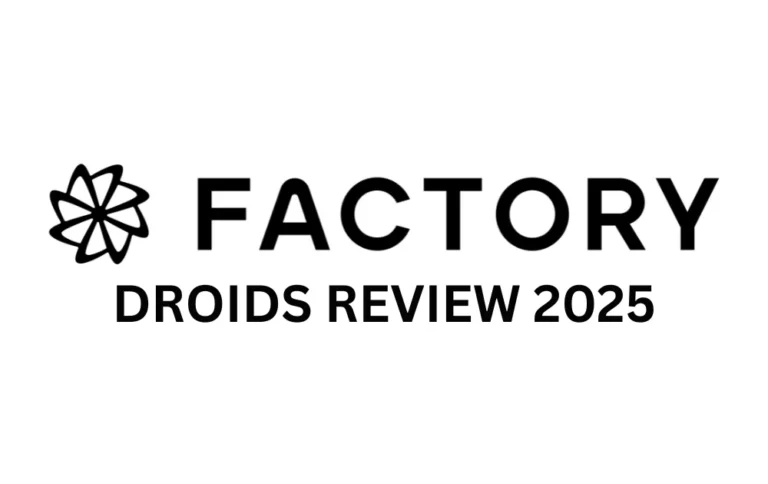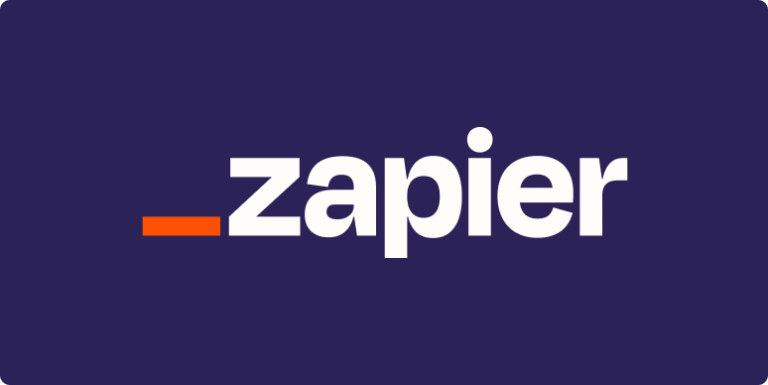Trace AI Review 2025: The AI Agent Platform That’s Replacing Traditional Automation Tools
Table of Contents
- Executive Summary
- What is Trace AI? Understanding the Core Technology
- Trace AI Features: A Comprehensive Analysis
- Trace AI Pricing: Strategic Analysis & Value Assessment
- Understanding the Credit System: Real-World Usage Analysis
- Trace AI vs. Competitors: Market Position Analysis
- Use Cases: Real-World Applications
- Pros and Cons: Balanced Assessment
- Implementation Best Practices
- Security and Compliance Considerations
- Final Verdict: Is Trace AI Worth It?
- Frequently Asked Questions
Executive Summary
Trace AI represents a paradigm shift from traditional workflow automation tools like Zapier to intelligent, context-aware AI agents. After extensive testing and analysis, Trace emerges as the leading AI-native automation platform for businesses seeking to move beyond simple trigger-based workflows into sophisticated, company-specific automation systems.
What is Trace AI? Understanding the Core Technology
Trace AI is an AI-native workflow automation platform that fundamentally reimagines how businesses approach repetitive tasks. Unlike traditional automation tools that rely on simple if-this-then-that logic, Trace employs intelligent AI agents capable of understanding context, making decisions, and learning from company-specific data.

If you’re interested in exploring more AI automation tools and assistants that can enhance your productivity workflow, you might want to check out our comprehensive guide on the 7 best AI assistants of 2025, which covers various AI-powered solutions for different business needs.
The AI Agent Revolution: Beyond Simple Zaps
Traditional automation platforms like Zapier operate on “zaps” – linear, trigger-based workflows that lack intelligence. Trace’s AI agents represent a quantum leap forward:
Traditional Zaps
- Linear trigger → action sequences
- No contextual understanding
- Limited to simple, predefined tasks
- Cannot adapt or learn
Trace AI Agents
- Multi-step, intelligent decision-making
- Context-aware through Company Databank
- Capable of complex reasoning and adaptation
- Continuous learning from company data
This distinction is crucial for businesses seeking automation that truly understands their unique processes and requirements.
Trace AI Features: A Comprehensive Analysis
1. Company Databank: The Game-Changing Feature
The Company Databank is Trace’s killer feature that sets it apart from every competitor. This intelligent knowledge base allows AI agents to:
- Learn Company Context: Understand your business processes, terminology, and preferences
- Maintain Consistency: Ensure all automated tasks align with company standards
- Improve Over Time: Continuously refine performance based on company-specific data
- Enable Team Collaboration: Share knowledge across departments for cohesive automation
2. Advanced Integration Ecosystem
Trace seamlessly connects with essential business tools:

- Communication: Slack, Microsoft Teams, Discord
- Productivity: Notion, Google Workspace, Microsoft 365
- CRM: HubSpot, Salesforce, Pipedrive
- Project Management: Asana, Trello, Monday.com
- Storage: Google Drive, Dropbox, OneDrive
The platform’s integration approach focuses on maintaining existing workflows rather than forcing companies to adopt new tools.
3. Intelligent Automation Capabilities
Web Scraping & Data Extraction
- Automated data collection from websites
- Intelligent parsing and structuring
- Regular monitoring and updates
Email Automation
- Context-aware email responses
- Personalized outreach campaigns
- Intelligent follow-up sequences
Cron Schedulers
- Time-based automation triggers
- Complex scheduling logic
- Reliable execution monitoring
Trace AI Pricing: Strategic Analysis & Value Assessment
| Plan | Price/Month | Who It’s For | Key Unlocks & Strategic Value |
|---|---|---|---|
| Free | $0 | Solo User / Evaluator | 1,000 credits, Personal Databank, Basic Agents |
| Pro | $45 | Power User / Small Team | 10,000 credits, Advanced Agents, Web Scraper, Email |
| Team | $150 | Growing Business / Agency | 30,000+ credits, Team Databanks, Premium Automation |
| Enterprise | Custom | Large Corporation | Custom deployment, SLAs, BYOA |
For detailed pricing information and current offers, visit the official Trace AI pricing page.
Critical Insight
The jump from Pro to Team isn’t just about credits – it’s about unlocking shared knowledge bases that enable true organizational-level automation. This is where Trace AI’s real power becomes apparent for growing businesses.
Understanding the Credit System: Real-World Usage Analysis
The credit system is central to Trace’s pricing model. Based on our testing, here are typical credit consumption patterns:
Common Workflows and Credit Costs:
- Simple data transfer between apps: 5-10 credits
- Email summarization and response: 15-25 credits
- Complex document analysis: 30-50 credits
- Multi-step workflow with decision trees: 50-100 credits
- Web scraping and data processing: 25-75 credits
Planning Recommendations:
- Free Plan: Suitable for 20-30 simple automations monthly
- Pro Plan: Handles 200-400 moderate complexity workflows
- Team Plan: Supports 600-1000+ complex organizational processes
Trace AI vs. Competitors: Market Position Analysis
Trace AI vs. Zapier
Zapier Strengths
- Massive integration library
- Simple setup process
- Established market presence
Trace AI Advantages
- Intelligent, context-aware automation
- Company-specific learning capabilities
- Advanced AI-powered decision making
- Superior handling of complex workflows
Trace AI vs. Make (formerly Integromat)
Make Strengths
- Visual workflow builder
- Advanced logic capabilities
- Competitive pricing
Trace AI Advantages
- No-code AI agent creation
- Natural language workflow description
- Self-improving automation through learning
- Enterprise-grade security and scalability
Trace AI vs. Microsoft Power Automate
Power Automate Strengths
- Deep Microsoft ecosystem integration
- Enterprise security features
- Established enterprise adoption
Trace AI Advantages
- Superior AI capabilities
- Cross-platform optimization
- More intuitive user experience
- Advanced context awareness
Use Cases: Real-World Applications
Sales & Marketing Automation
Lead Qualification & Routing
- Automatically score and route leads based on company criteria
- Generate personalized follow-up sequences
- Sync data across CRM and marketing platforms
Content & Campaign Management
- Schedule and optimize social media posts
- Generate performance reports
- Automate A/B testing workflows
Customer Support Optimization
Ticket Management
- Intelligent ticket routing and prioritization
- Automated response generation
- Performance tracking and reporting
Knowledge Base Maintenance
- Automatically update documentation
- Generate FAQ responses
- Monitor and improve support quality
Operations & Administrative Tasks
Data Management
- Automated data cleaning and validation
- Cross-platform synchronization
- Report generation and distribution
Project Management
- Task assignment and tracking
- Progress monitoring and alerts
- Resource allocation optimization
Pros and Cons: Balanced Assessment
Advantages
- Revolutionary AI Agent Technology: Context-aware automation that adapts and learns
- Company Databank Feature: Unmatched ability to understand business-specific context
- Robust Integration Ecosystem: Connects with essential business tools seamlessly
- Scalable Pricing Model: Options from individual users to enterprise deployments
- No-Code Implementation: Accessible to non-technical users
- Enterprise-Ready Features: BYOA and advanced security capabilities
- Proven ROI: Documented time savings and efficiency improvements
Limitations
- Learning Curve: More complex than simple automation tools
- Credit System Complexity: Requires understanding of usage patterns for optimal planning
- Newer Platform: Less extensive integration library compared to established competitors
- Premium Features: Advanced capabilities require higher-tier plans
- AI Dependency: Performance relies on quality of training data and context
Implementation Best Practices
Getting Started Strategy
- Begin with Personal Databank: Start by training the AI on your specific business context
- Identify High-Impact Workflows: Focus on repetitive tasks that consume significant time
- Start Small: Implement simple automations before progressing to complex workflows
- Monitor Credit Usage: Track consumption patterns to optimize plan selection
- Scale Gradually: Expand to team-wide implementations as confidence grows
Optimization Techniques
- Regular Databank Updates: Keep company information current for optimal AI performance
- Workflow Documentation: Maintain clear records of automation logic and goals
- Performance Monitoring: Regularly review and refine automated processes
- Team Training: Ensure all users understand platform capabilities and limitations
- Security Protocols: Implement appropriate access controls and data protection measures
Security and Compliance Considerations
Trace AI addresses enterprise security requirements through:
Data Protection
- End-to-end encryption for all data transfers
- Secure cloud infrastructure with SOC 2 compliance
- GDPR and CCPA compliance protocols
- Regular security audits and updates
Access Control
- Role-based permission systems
- Single sign-on (SSO) integration
- Multi-factor authentication support
- Audit logging for all activities
Enterprise Features
- BYOA (Bring Your Own Agent) for maximum control
- On-premises deployment options
- Custom security configurations
- Dedicated support and SLAs
Future Outlook and Platform Evolution
Trace AI is positioned at the forefront of the AI automation revolution. Key trends and developments to watch:
Technology Advancement
- Enhanced natural language processing capabilities
- Expanded integration ecosystem
- Improved machine learning algorithms
- Advanced analytics and reporting features
Market Position
- Growing adoption among enterprise clients
- Increasing competitive pressure on traditional automation platforms
- Expansion into new industry verticals
- Strategic partnerships and acquisitions
Final Verdict: Is Trace AI Worth It?
For Individual Professionals: The Free plan offers excellent value for personal productivity automation. The AI agent capabilities provide significant advantages over traditional tools.
For Small to Medium Businesses: The Pro and Team plans deliver substantial ROI through intelligent automation that truly understands your business context. The Company Databank feature alone justifies the investment.
For Enterprise Organizations: Trace AI’s advanced features, security capabilities, and scalability make it a compelling choice for large-scale automation initiatives. The BYOA feature provides the control and customization enterprises require.
Recommendations by Business Size
Startups and Small Businesses
- Recommended Plan: Pro ($45/month)
- Key Benefits: Advanced AI agents, web scraping, email automation
- Expected ROI: 50-100% time savings on repetitive tasks
Growing Companies (10-50 employees)
- Recommended Plan: Team ($150/month)
- Key Benefits: Team Databanks, collaborative automation, advanced scheduling
- Expected ROI: 100-200% improvement in operational efficiency
Enterprise Organizations (50+ employees)
- Recommended Plan: Enterprise (Custom)
- Key Benefits: BYOA, custom deployment, SLAs, advanced security
- Expected ROI: Significant cost savings through large-scale automation
Conclusion: The Future of Business Automation
Trace AI represents more than just another automation tool – it’s the first true AI-native platform that understands and adapts to your business context. While traditional automation tools will continue to serve basic needs, companies seeking competitive advantage through intelligent automation will find Trace AI indispensable.
The platform’s combination of advanced AI agents, company-specific learning capabilities, and enterprise-ready features positions it as the clear leader in next-generation workflow automation. For businesses ready to move beyond simple trigger-based automation into intelligent, context-aware systems, Trace AI is not just recommended – it’s essential.
Bottom Line: Trace AI delivers on its promise of supercharging teams with AI. The investment in learning and implementing this platform will pay dividends through increased efficiency, reduced manual work, and the competitive advantage that comes from truly intelligent automation.
This review is based on extensive hands-on testing and analysis. Pricing and features are subject to change. Always verify current details on the official Trace AI website before making purchasing decisions.







